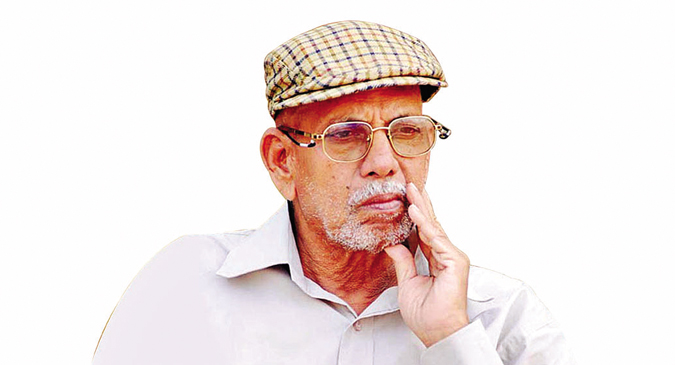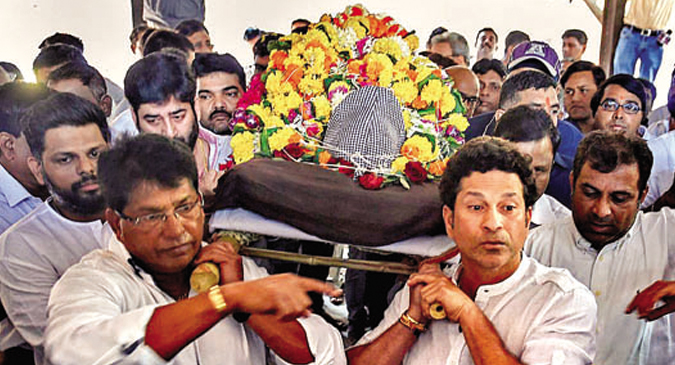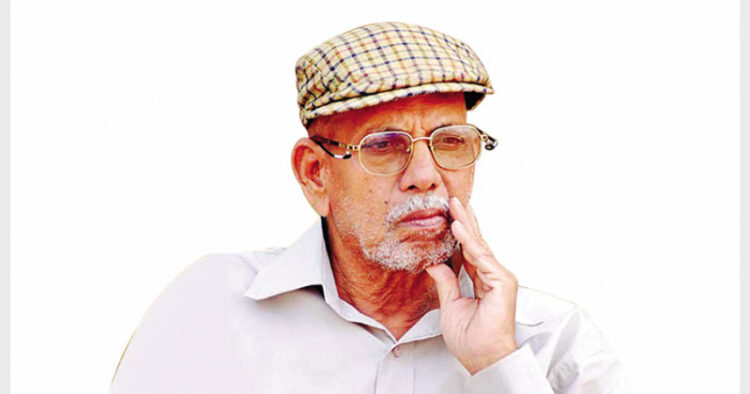
(1932-January 2, 2019)
One of India’s finest cricketing gurus may have breathed his last, but an entire generation of cricketers and varied stakeholders of the game will never be able to erase him from their memories whenever they pass by the Kashi of Mumbai cricket, Shivaji Park
Achrekar sir is no more. The man who represented the intrinsic and age-old Bhartiya values of ‘Guru-Shishya Parampara’ has left this beautiful planet forever. The fact that he epitomised this tradition in the contemporary times points to the timeless virtue of this tradition. In the age when sports academies are running with the names of the sporting superheroes, he was not the one who would rush to take credit of the performances of the trainees. In the times when the promoters of the sports coaching academies go extra miles to ensure that the success of their wards gets banner headlines, he berated the writers for writing about Sachin Tendulkar, when he dominated school cricket in Mumbai. He was of the firm belief that his ward should remain grounded and focused on his game. One of India’s finest cricketing gurus may have breathed his last, but an entire generation of cricket players and their parents, cricket coaches, cricket writers and the varied stakeholders of the game will never be able to erase him from their memories whenever they pass by the Shivaji Park. These memories comprise of the guru slogging there and preparing the nets and wickets with his students before every practice sessions. Once these sessions used to end, he would take the talented ones across the city to play matches on his scooter.
Like our gurus mentioned in our ancient literature and epics, he was a hard taskmaster who demanded complete dedication from his players. He was open to failures and consistently working hard taking lessons from them. However, he never tolerated indiscipline. He was frugal regarding giving an extra pat in the back. Sachin Tendulkar had to play years of international cricket to hear ‘Well Played’ from him. One of his another protégé Chandrakant Pandit was expecting pat in his back after scoring a triple century in school cricket. Instead, what he received was a slap on his face for throwing away his wicket. His disciple Romesh Pawar sums it up succinctly when he says, “As a captain of a school team, you had many responsibilities. You have to collect the match fee and organise the nets. One time I remember that just before the rainy season, it was getting cloudy and rain about to start. Sir asked me to start off practice, but I got busy playing with rubber ball cricket with my friends. I forgot about the net time. Then sir turned up, and I started putting up the nets in a hurry. It was up, but I got a tight slap. I was lucky I got slapped by him because ones who got his slap somehow ended up playing international cricket”.

Sachin Tendulkar attending last rites of Ramakant Achrekar. He was cremated at Mumbai’s Shivaji Park
Like our sages mentioned in our folk literature, he used to invent and improvise new methods of training to sustain and build upon the passion of his students for the game. The fact that he put a coin on the wicket and allowed Sachin Tendulkar to walk with the coin only if he was able to save his wicket is now part of the folklore. We live in an era where communication skills are supposed to be the most integral part of the coaching. However, like all the great coaches in the varied walks of life in our ancient tradition, Achrekar Sir was the man of few words. He was not a great communicator and a man of few words. The person who avoided talking at length with anyone was a completely transformed figure when he walked on to the cricket field. More importantly, like all such great coaches, he rarely believed in changing the natural technique and approach of his players. Instead, he would build on the foundation and prepared them how to make the most on an in-match situation. India’s current batting coach Sanjay Bangar once in an article mentioned, “Unlike the modern sports academies which have the uniform coaching style for all their students, coaches like Achrekar sir and AN Sharma has got a customised solution for their different wards. They do not tinker with their wards intrinsic technique. Rather, they believe in giving them maximum exposure to further tighten them as per the match situation”.
Like the gurus in our ancient tradition, Ramakant Achrekar, apart from the skill set, taught his students the philosophy of life. This helped them in the different stages of their careers. The cornerstone of his coaching philosophy was pushing his wards to the limit to produce results which were being imbibed in the likes of his wards like Chandrakant Pandit and Pravin Amre. Not surprisingly, they have turned out to be one of the successful coaches in recent times. Unlike most of the coaches of today, like our ancient gurus, Achrekar sir, guided and supported his students in all other aspects of life. For instance, youngsters who came from far away places would be taken to his home in Bhoiwada for lunch where his wife would cook for the lot. He asked Pravin Amre to leave Mumbai and play for the railways. This was the crucial game changer in his career, and he went on to play for the country. He was equal for all and known for his fair play in his life. For instance, he made a seminal contribution to women’s cricket. His two daughters Kalpana and Vishakha went on to play for Mumbai, and he coached many girls at Navyug club.
Achrekar sir often used to say,‘God is great’. This line could be often heard from his shishya who has become coaches today. The line was on full display, when in a touching gesture, young cricketers who were playing a match at Shivaji Park, gave him a guard of honour when his body passed from the maidan (field) for one last time.
(The writer is a senior sports journalist and author of The IPL Story: Cricket, Glamour and Big Money)













Comments